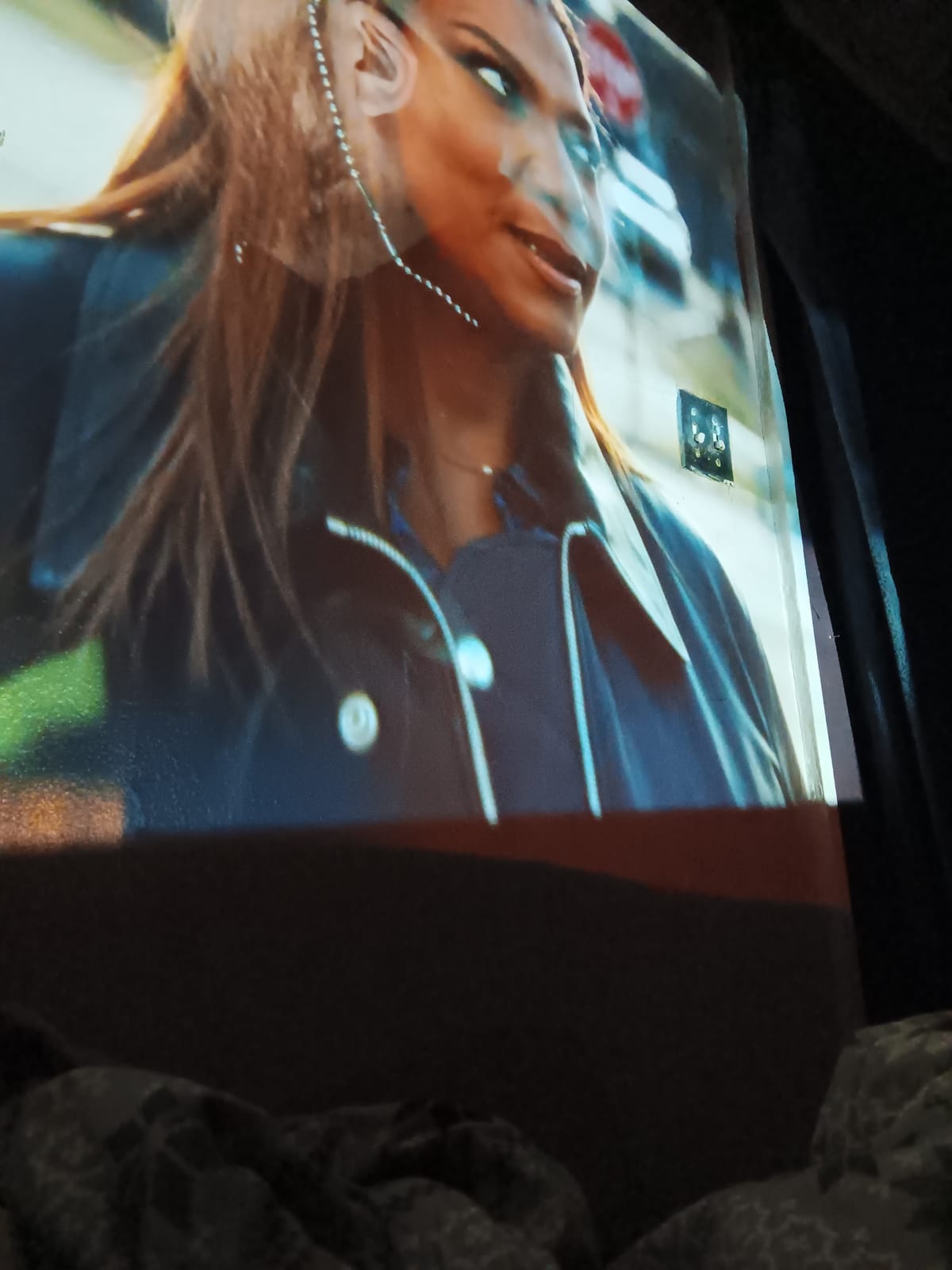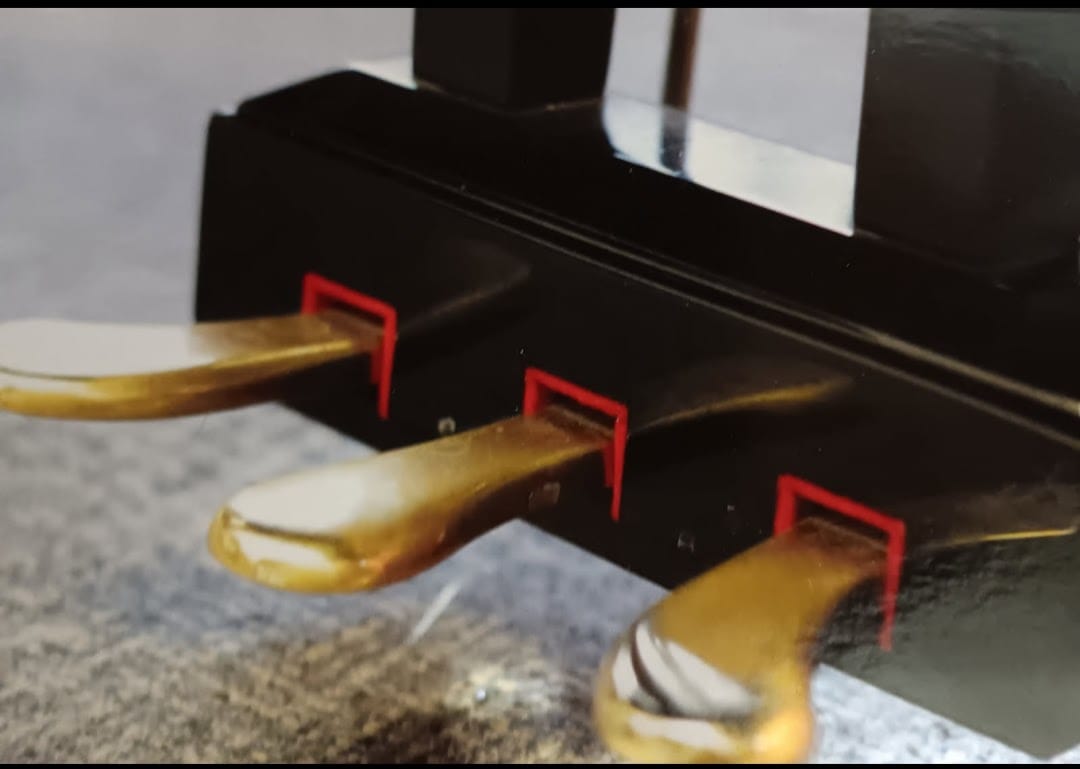How to discover your teaching style.
The Piano Instructor

This Sunday morning, I made coffee from beans a friend gave me last night.
I fed Dr Carter some of the fanciest of Fancy Feasts.
Then I curled up on my chaise lounge, wrapped myself in a giant soft London Fog comforter and began watching The Equalizer starring Queen Latifah. The entire wall is my screen.
The cat food was on sale; a store chain is closing and the pet food was marked down to $.25 a can.
My chaise lounge was constructed by Art Van designers 20 years ago. The previous owners took care of it, and the construction and upholstery were clearly high quality even by today’s standards. I bought it for $25.
A $3,000 blanket is not going to do anything more for me than my $10 blanket that I found on sale at a department store.
Good writing and action packed scenes starring an accomplished entertainer is always going to win in this household. The fact that it’s projected onto my wall via a $35 overhead projector and a Roku stick makes it pretty cool.
Knowing what would make me feel luxurious helps me recognize it in the wild when I see it, and then I can learn how to experience it exactly where I stand.
Cost is usually the big obstacle preventing folks from living their version of fabulous, but there is always a reason to not do stuff. My networth is not in the same category as Queen Nour, but the feeling of luxury and contentedness is ever present and comments noting this show up in my teacher evaluations. How?
Knowing what is important to me and then focusing on that is how I got here.
I'm not trying to compete with the neighbors. My interior design is not based on trends. I have clear markers that I look for to know if this is of the standards I set, regardless of what the price tag says, and if those markers are present I'll figure out how to bring it into my life, exactly where I stand.
That's why my style cannot be duplicated.
Same for you.
Your style cannot be duplicated. And if you love yourself, that unmistakable style show up in the music of your life.
My loving the fact that I exist has helped me create an inner world that helps me and others shine. My friend circle, my family interactions, my clients and business acquaintences…having a dream life means interacting with some dreamy people.
All of this can be cultivated.
What does this have to do with teaching?
Start with knowing the standards. Whether they're state standards, competition standards, composition foundationals, music theory levels or your own “My students need to be able to do this”, be very clear, make sure the standards are quantifiable, and make sure all parties know what's expected.
Listening to other pianists, watching other teachers teach, celebrating student wins and soothing them when they feel like they've faltered are actions that help you figure out your own inner world.
Take the classes and the workshops in a search to become more you, not to duplicate someone else. Hone your skills to become more comfortable using your pedagogy tools, not to try to carve yourself into something you're not.
You're doing all this through the lens of the expression of your life. If life is miserable in your estimation, then it's likely your home reflects that, your friends circle echoes that and how you interpret events in your life will have that as a common thread. It'll show up in the studio.
If your life is focused on light-bringing…
Networking with teachers helps you moderate this, and experiencing live music will help temper this. These are activities that bring your focus forward.
Listening to, say, Harish blend his experiences growing up in Goa with his interpretation of Mozart’s Rondo Alla Turca can help you explore how you can express your background through Brahms or Monk. You'll never play like Harish. It's not possible. You can discover how to be as committed and as expressive and as forthright as Harish.
And that's how your style comes forward…by being so you that You are present while trying out different ways to interpret the same piece.
Observing, say, Kate in her voice studio encourage a student who didn't get the gig will help you learn how to better handle disappointment and help you learn how to pivot, skills that transfer in the studio or classroom. Watching a teacher teach a student how to move like water around obstacles (and learn that the obstacles are part of the flow) helps you learn how to go with the flow in your own way, in a way that works for you.
That's a skill that translates into the studio and the classroom.
Take a look at your life. What are you letting slide? What are you very strict about? Where does the beauty show up in your life? Where is beauty scant or non-existent?
Can you now recognize the gliterring talent that that one student has that other teachers seemed to have overlooked, the expensive London Fog blanket that's relegated to the discount bin?
Perspective.
Reflect on how this all shows up in your teaching.
Be around teachers. Be around musicians. Pay attention. Try stuff. Fail. Ask questions. Win. Reflect and share.
Shine, exactly where you are, as you are.
That's how your style emerges.
